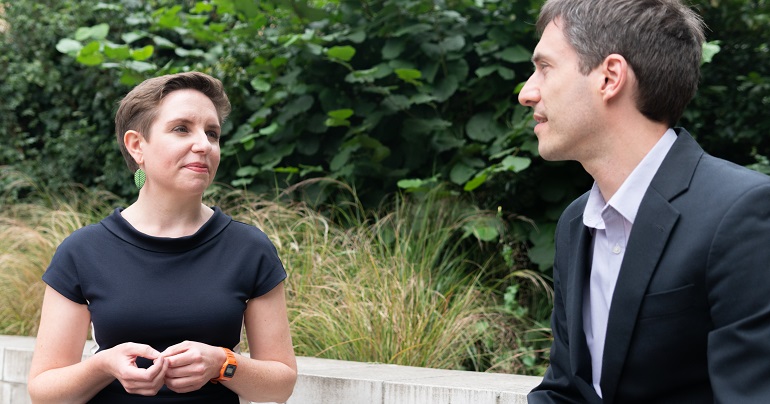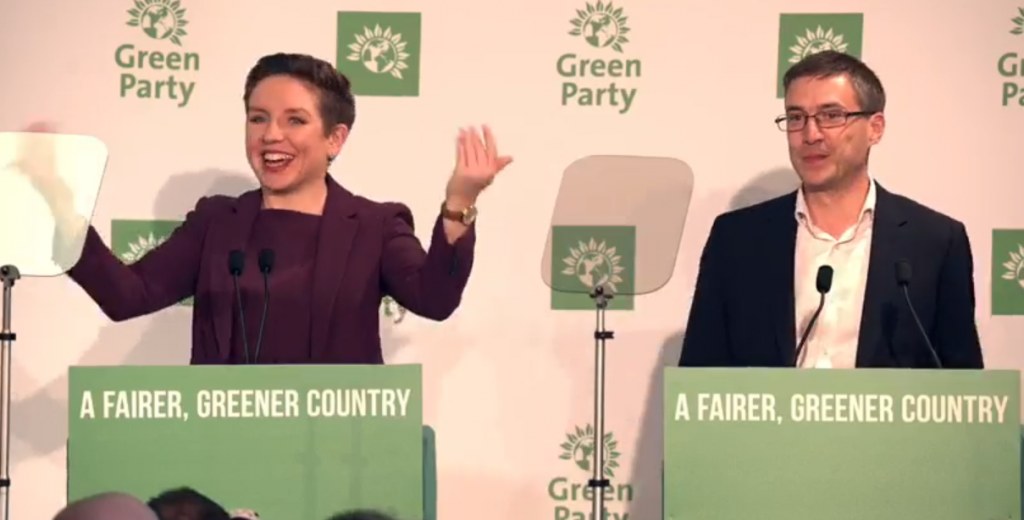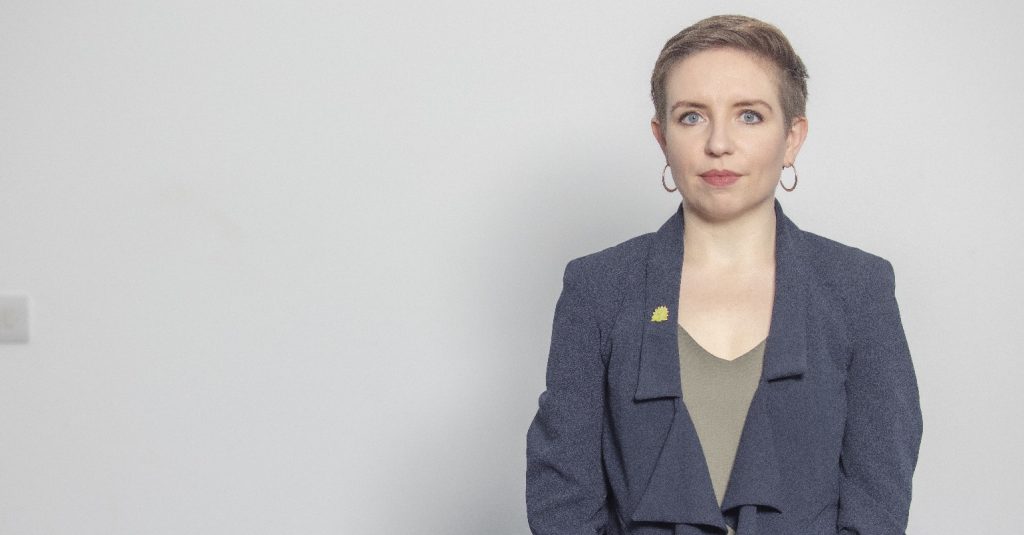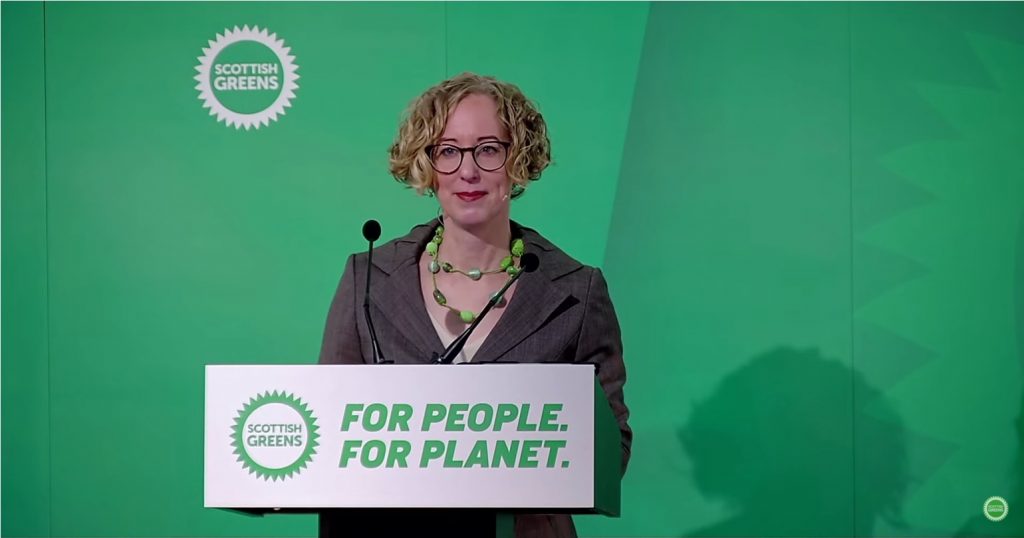Carla Denyer and Adrian Ramsay would broaden the Greens’ appeal

In the musical version of Les Miserables, as the student revolutionaries plan their uprising their leader challenges his compatriots, “it is time for us all to decide who we are; do we fight for the right to a night at the opera now?” The point is well made: winning historic, systemic change is not an exercise in armchair idealism but a commitment to a cause worth fighting for (and dying for, in Enjolras’ case). It seems to me that the membership of the Green Party of England and Wales needs to ask itself a similar question before deciding who to make its next leader(s) – who are we, and what are we fighting for? And more importantly, are we going about it in the right way?
Our party is at a fork in the road. It could be argued that our stock has never been higher; we now have almost 450 elected Councillors throughout England and Wales, giving us representation on a scale we’ve never experienced before. We also have a controlling voice in more of those councils than ever, and yet more councils (including my own in Solihull) are tantalisingly close to a real Green breakthrough. But at the same time, we could – should – be doing better by now. To still be at one MP, eleven years after our breakthrough in Brighton Pavilion, should be cause for serious concern. The acceptance of climate crisis is more prevalent than ever, but our Westminster voting intention is still lingering behind the Liberal Democrats, even after this year’s amazing results, which means we are still getting something fundamentally wrong.
For me, that something was encapsulated by Rosi Sexton’s leadership campaign of 2020. (Full disclosure: Rosi is a fellow Solihull Councillor, we’re engaged, and I was her campaign manager; so I may be somewhat biased!) That campaign’s message was clear – if we want to effect meaningful change, we have to recognise that we are the political voice of the Green movement, and we have to organise accordingly. And we must be serious about that work: serious about being inclusive, nurturing our best talent, and rooting out intolerance in our midst; serious about credibility, and ensuring our policy follows the evidence and not the other way round; and serious about electoral success, which means recognising that winning elected representation is how we, the Green Party, best serve the Green cause.
This last should be our raison d’etre. Whilst we can and should continue to campaign on the issues we hold dear, we should also recognise that fantastic organisations like Extinction Rebellion, Friends of the Earth, Black Lives Matter, Amnesty, Make Votes Matter and many others also speak the truth to power; and sometimes they can do so in a way that we, encumbered as we are by the court of public opinion and the reality of electoral law, cannot and should not. We should be informed by their actions and support them when their missions align with our own, but equally we should recognise that we can operate in a domain that those organisations cannot – the battlefield of electoral politics is the field that we as the Green Party must contest alone against the Establishment parties that will never share our vision for either our natural world or our social order. Yes, our party’s history is a campaigning one – since our inception we have put ourselves in the way when injustice threatens the less fortunate or the planet we share – however the world today is not as it was in 1976. Our cause is better understood and supported than ever, and now we need to organise to fight the battle where we can fight it best – at the ballot box and in the chambers of power.
And so to the question of the leadership contest now in full swing. As an elected Green who believes our future should be as an unabashedly competitive political force, my preference vote for the leadership can only go to Carla Denyer and Adrian Ramsay. We should remember that we created the post of leader to help Caroline Lucas to get to Westminster, and recognise that it is imperative that Carla becomes the next Green MP and the vanguard of many more to follow. But that isn’t justification enough – Carla and Adrian’s track records and credentials are also beyond question, and their understanding that we need to have critically robust solutions to the political problems we face is a key differentiator in this race. In my view Carla and Adrian understand the value of electoral success, and I believe they also understand that to make the gains we must, it’s not enough for us to only appeal to the sector of the electorate we already serve – we only win elections by persuading the voters that didn’t vote for us last time to do so the next time, and that won’t happen by ever more loudly demanding they accept our perspective. As Desmond Tutu said, “If you want peace, you don’t talk to your friends – you talk to your enemies”; we need a comprehensive political offer that speaks to the entirety of the challenge our country faces, and for me Carla and Adrian are the only leadership ticket on the ballot paper with the proven ability to present that offer in a way that will reach all parts of the electorate.
Those familiar with the story of Les Miserables will know that Enjolras’ putative revolution ended in bloody defeat at the hands of the National Guard. But history tells us revolutions can be won, with the correct application of personnel and materiel. Now, as the need for a climate revolution becomes ever more urgent, it’s time for us all to decide who we are.
PS. We hope you enjoyed this article. Bright Green has got big plans for the future to publish many more articles like this. You can help make that happen. Please donate to Bright Green now.




Leave a Reply